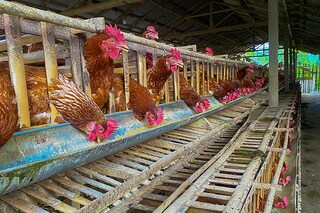How animal cruelty harms humans
Close to 4 billion animals in different sectors face extreme cruelty, and has direct impact on public health, labour welfare and climate resilience, says report


The India Animal Fund and Dasra released a report on Tuesday titled ‘Our shared future: Securing animal welfare, human wellbeing, and sustainability in India’, which highlights the crucial role of animal welfare within India"s socio-economic and ecological systems. The report demonstrates how animal welfare is closely linked with public health, labour welfare, and climate resilience.
The report looks at animals in different sectors, such as farm animals in the agriculture and allied sectors, working animals such as bovines, equids, camels and elephants, animals used in experimentation (about 1.2 million), and homeless animals including cats, dogs, horses, donkeys, and cows, most of which are abandoned and inhabit public places.
Let’s take a look at some numbers:
With regards to environmental impact, the report highlights that livestock farming accounts for 14.5 percent of global greenhouse gas emissions and significantly contributes to habitat destruction and pollution. Industrialised farming demands extensive land and fodder, leading to deforestation and ecological imbalances. For instance, intensive fishing practices have disrupted the ecological balance of aquatic environments. Additionally, increased pollution from runoffs associated with animal farms, slaughterhouses, and related facilities, along with improper waste management, contaminates water, soil, and air. This pollution negatively impacts nearby communities and the natural resources they depend on.
According to the report, there are not just physical impacts, but the mental health impacts of working in this sector are significant as well. Individuals exposed to animal cruelty, including children and slaughterhouse workers, are at a higher risk of developing mental health disorders, experiencing trauma, and exhibiting antisocial behaviour, the report says.
More specifically, regarding capital and talent, the report highlights the significance of advocating for increased strategic financial support and investment in organised, intersectoral animal welfare initiatives. This involves enhancing the capacities of on-ground practitioners and promoting collaborations among academia, industry, and government to accelerate the adoption of cruelty-free practices and innovations.
First Published: Jun 25, 2024, 15:40
Subscribe Now